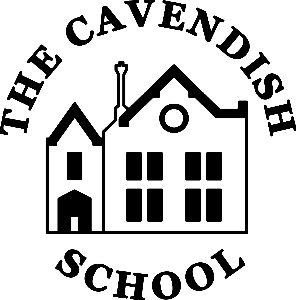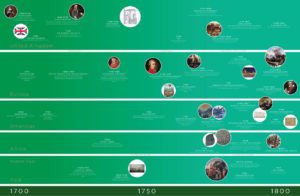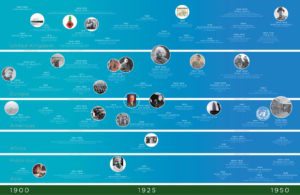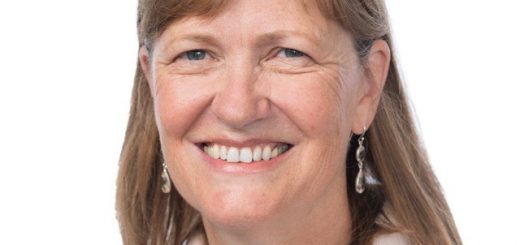Exclusive Interview with Miss Jane Rogers, the Headteacher of The Cavendish School
Mums In The Wood interviewed new Headteacher of The Cavendish School, Miss Jane Rogers on 16 November 2017. An experienced and accomplished educator, Miss Rogers is also an Independent School Inspector and a widely published contributor to a variety of education journals.
Having been Headteacher of City Of London’s School for Girls Prep for 7 years, prior to taking on the headship at The Cavendish School, she was excited and spoke warmly of her current role. She was completely clear that the family ethos of The Cavendish School would remain as it was and that it was this that made the school so special. Being a parent to a son and daughter who had attended independent schools with a very similar ethos, she was enthusiastic about the values that the school upheld and how important it was to foster an environment of kindness which was a much emphasised principle of the school.
Miss Rogers talked about the refurbishment the school had recently undergone and the new students and new staff members all of which contributed to revitalising the school.
From an Anglo-Indian background, Miss Rogers went from an amazing primary school to a very selective and very successful Grammar School. She had always been interested in pedagogy and consequently developed an interest in teaching by thinking about how things were taught . She taught for 10 years in the state sector, moving from teaching Early Years through all Key Stage 1 and 2 classes to becoming a local education authority science advisory teacher and specialist and then being made Deputy Head in a large state primary, after which she moved on to Higher Education. She worked as a lecturer at the Institute of Education and was part of an international research project on School Effectiveness and School Development Planning during which she worked in partnership with researchers from Australia and Denmark. She went into teaching in the Independent sector after having her own children and went on to be a deputy head at her children’s school, after which she became Head of City Of London Girls Prep.
When asked about the state system and regulations and whether or not it posed a difficulty for teachers to provide individualised learning plans, she was clear that she felt that guidelines should never be put above the individualised learning objectives of a child. She spoke of a time when there was no National Curriculum and too much freedom for the teachers to interpret a syllabus which resulted in a lack of continuity for the children. She was firm that being a positive person was helpful and that it was important not only to strategise but also to implement what was being talked about and proposed.
Miss Rogers expressed great concern about the effect that limited resources were having on the state system. She was keen to maintain partnerships with local state schools not only because it helps pupils to stay grounded and but also because she believes strongly in shared learning. She spoke warmly of how receptive the parents were of these community initiatives and explained that the school invites pupils from local state primaries to their premises and, shares Cavendish music teachers with local state schools. She was very clear that charity is not just about raising money but also about engagement and often involves pupils in choosing charities and working towards raising money for those chosen charities themselves.
Question:
What is your vision for Cavendish School and how (if applicable) does it differ from that of Mrs Dunbar?
Answer:
My vision is to continue to develop the caring, nurturing ethos of the school. The emphasis on differentiating work and supporting each individual pupil within a small class setting continues. I am able to further build on the vision of Mrs Dunbar by extending our focus on STEM opportunities and continuing to update and extend our offering in line with pastoral and curricular developments. Staff development is an important component of this journey. We have a happy and stable staff team. Every individual child and staff member is celebrated and supported. We are something of a ‘hidden gem’ in Camden Town and we continue to raise our profile locally.
Question:
Having moved from a high profile, academic school like City of London Girls, where students sit a competitive examination to gain admission, how have you found the transition to a non-selective prep school?
Answer:
CLSG was the only school where I have worked that was academically selective. My previous experience was in the state sector, higher education and in non-selective independent schools. The experience of assessing pupils at 7+, preparing them for 11+ and being part of the Senior Management Team at CLSG gave me unique insights into the rigours and demands of these selection processes and the joys and challenges of senior school. These experiences have been very helpful at The Cavendish School. The ethos of welcoming all pupils whatever their ability is an important part of my pedagogy and one I chose for my own children when they were at Prep School.
Question:
What do you feel will be the main challenges between a headship at a prep school that starts at 3+ and one that starts at 7+?
Answer:
I only feel that there are advantages. I am familiar with Early Years and Key Stage One settings having started my teaching career with these young pupils. The advantages of the continuity of learning from nursery to Year 6 and involvement in establishing the important foundations of learning cannot be over emphasised.
Question:
Some of the girls’ schools that have a co-educational policy in the early years seem to be changing their policy due to declining numbers of boys in the classes. Will Cavendish remain co-educational during its early years or are there plans to phase this out?
Answer:
We are currently involved in a consultation and research period to decide on the important question of whether we should make any changes as regards co-education. This has come about because of demand from some of our current parents who would like their sons to benefit from the education their daughters enjoy at The Cavendish School. Equally, we have parents who are very happy and want to keep things exactly as they are. We are in the fortunate position of being quite full, with waiting lists for some years, and have no plans currently to change anything. However we are investigating our options and a decision about whether to make any changes to our current policy will be made at the start of the Summer term.
Question:
Will the admissions criteria at Cavendish remain non-selective or are there plans to introduce an academic assessment into the selection process?
Answer:
The Cavendish will remain non selective despite growing demand for places at our School. This is a fundamental aspect of our ethos and culture.
Question:
What advice would you have for parents interested in the school and keen to apply and what would you say to parents who are interested in finding out how your arrival may impact the school?
Answer:
I would advise prospective parents to study our website and contact our Admissions Officer, Pia Pasternack, for further information. We welcome prospective parents on our frequent open mornings and we are happy to meet them on other occasions. I know that it is an important decision and want to be transparent about our many strengths and unique approach to learning. I know that many prospective parents also talk to our existing parents. Most of our prospective parents initially contact us on the basis of personal recommendation. I think as I start my third term at the School I already feel happy and settled. I think my impact is reflected in our developing policies and communication with parents within a systematic approach that ensures continuity and progression, growing numbers and happy pupils, staff and parents.
Question:
Having taught mainly at girls’ schools, what are your thoughts on single sex schools v co-educational schools for girls?
Answer:
City of London School for Girls was the only single sex school that I have taught at. My view of single sex education is that it allows girls to have the freedom and opportunities, particularly in secondary school, that are open to all pupils. There is no one perfect model. Some pupils are better suited to single sex and others to co-educational settings.
Question:
What are your thoughts on the changes introduced to the 11+ exam by the North London Girls Schools Consortium? i.e. scrapping the Math and English papers in favour of a cognitive ability/ reasoning test?
Answer:
I am in favour of anything that reduces stress and the number of exams that our pupils have to be involved in. The new tests will include English and mathematics elements. The follow up interviews will be an important opportunity for schools to get to know their prospective pupils.
Conclusions
The school has benefitted from its extensive refurbishment. The new building and gym halls, drama studio and music rooms have all been beautifully done. The time line addition to the playground wall was clearly attracting a lot of interest each playtime and it was heartening to see so many of the girls gathered interestedly around it even though it was a permanent fixture on the playground wall.
The art work remains impressive and decorates almost all the free spaces in the corridors and class rooms. The librarian was immensely enthusiastic and there was a good range of books on offer. The class sizes remain small at 20 girls per class and the learning remains differentiated with the girls who need an extra stretch being challenged and the girls who need extra help being well supported. Pastoral care is given priority and the school has 2 Sencos with the Deputy Head also overseeing pastoral care. Mental Health is very much in focus at the school and Miss Rogers is firm in her advice on which schools fit which girls when it comes to secondaries. The Shine Assembly where every girl is celebrated continues and each girl has their strengths commended and recognised. Ability grouping only happens from Year 4 onwards and girls are set for Maths and English. Miss Rogers is very hands on and goes in to observe lessons regularly and is also available for meetings with parents regarding their children’s progression should they wish to discuss it. The school has a good balance of a rewards system for being helpful, kind and a good friend/good person along with rewards for academic and physical achievements. She was clear on the controversial issue of tutoring that she felt that school should step up to the mark and take responsibility for the students’ academic preparation for their 11+ exams and should also do more to support parents. However, being pragmatic about it, Miss Rogers said she also understood and had sympathy for families who may struggle to help their child if both parents were working and understood that children sometime do need one to one help. She also mentioned that it would make more sense if a tutor is open to working with the school and the family together. However she cautioned that tutoring should always be undertaken as something to support a child who needs it rather than as a tool to mask a child’s ability which would not be beneficial in any sense in the long run.
She was clear that she would not be complicit in encouraging parents to apply for schools where their children would be happy. She was also clear that sometimes, at the wrong school, even a very able child can feel that he/she may be a failure even though they work hard and she was not going to allow any Cavendish girl to feel that way. Miss Rogers has also produced a booklet for parents which outlines the process and what they can do to support their child on the 11+ exam.
The school has an interesting mix of parents who hail from professional and creative backgrounds and international families which adds a richness and diversity to the school community.
The school has in spite of growing in popularity retained its ethos of kindness. The caring atmosphere is very apparent and it was wonderful to see that the school has also held on to its warm, community feel. The children are incredibly focused, happy and enthusiastic and it is clearly a school where children thrive and are nurtured both pastorally and academically.













